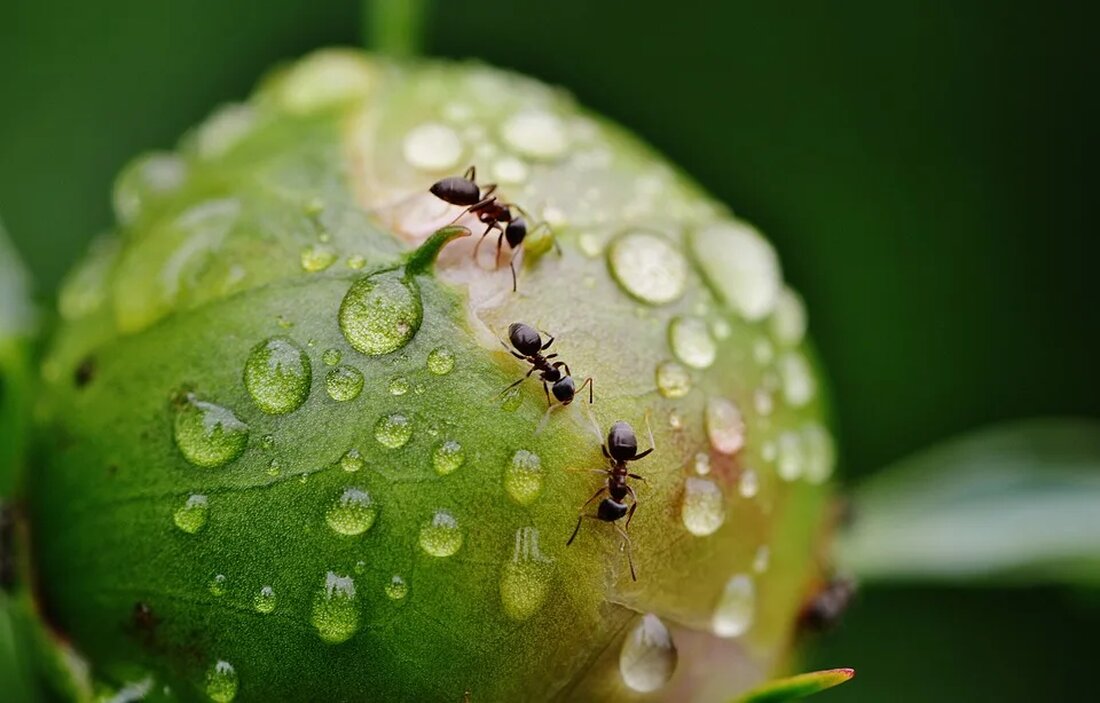How to improve the ground
The world of ants is fascinating and full of surprises. An aspect that has not yet been recognized by everyone is the importance of ants for improving the soil. In fact, ants contribute to the improvement of soil quality in a variety of ways and thus also influence the entire ecosystem. In this article you will learn how ants become useful "floor engineers" and how to improve the floor. Ants communities and their influence The basics of ants ants are known for their social structure and communication, as well as their qualification to build city -like structures. It is this ability to create buildings on a large scale and work on many ...

How to improve the ground
The world of ants is fascinating and full of surprises. An aspect that has not yet been recognized by everyone is the importance of ants for improving the soil. In fact, ants contribute to the improvement of soil quality in a variety of ways and thus also influence the entire ecosystem. In this article you will learn how ants become useful "floor engineers" and how to improve the floor.
Ants communities and their ground influence
The basics of ants
Ants are known for their social structure and communication, as well as their ability to build city -like structures. It is this ability to create buildings on a large scale and to distribute work to many workers who make ants into such effective environmental education designers.
The role of ants in the ground
Ants can live in the soil, and while you build your home - the ants hill - you move a lot of soil. This dug of the floor is comparable to plowing through larger animals. By rummaging around and redistribution of earth and organic materials, ants influence the soil structure and nutrient distribution, which can ultimately lead to the soil improvement.
Ants and ground finishing
Mix and ventilate the ground
Ants mix and aerate the soil through their constant digging and moving of soil. This allows oxygen and water to penetrate the soil more easily, which in turn is good for plant roots and overall soil health.
Organic material and nutrient cycle
Ants also contribute to improving the soil by collecting organic material and distributing them in the ground. When ants collect plant material or dead insects and commit them into their colonies, they contribute to the absorption of organic material. This organic material is a crucial contribution to soil health because it provides nutrients that can absorb plant roots.
Ants and the microbial activity in the soil
The movement and absorption of organic materials by ants also influences the microbial activity in the soil. The organic materials that bring ants into the ground act as a source of food for microorganisms. This stimulates the microbial activity, which is responsible for reducing organic material and the release of nutrients.
Ants and its effects on the ecosystem
Ants as a seed collector and plant pollinator
Some types of ants actively collect seeds and thus contribute to their spread. They collect these seeds in their colonies and thus contribute to reforestation and biodiversity. In addition, some ants also play a role in the pollination of plants.
Influence on the wildlife
Ants also have a direct influence on other animals. They serve as prey for many species and stand as robbers at the bottom of the food chain. In addition, ant colonies also offer dwelling for many types of insects and other living things.
Conclusion
Ants are more than just simple insects - they improve the floor and influence the entire ecosystem positively. They mix and ventilate the soil, bring in organic material and nutrients, stimulate microbial activity, help with the spread and promote biodiversity. Ants are not only for the soil, but for the entire ecosystem of invaluable value. It is remarkable how this little insect, which is often overlooked or considered a pest, is so important for our survival. Ants play a crucial role in both natural and urban environments and it is time that we spend more attention and respect for this small, hardworking worker.

 Suche
Suche
 Mein Konto
Mein Konto
